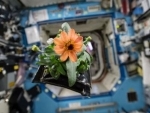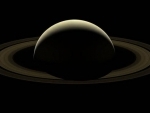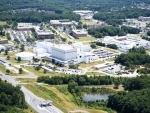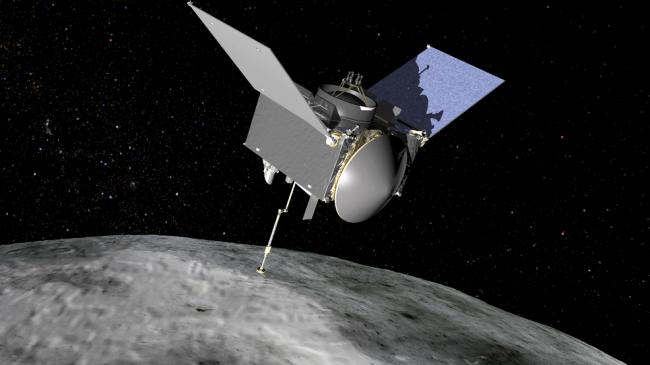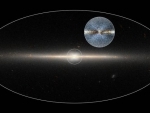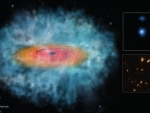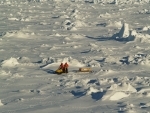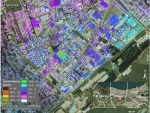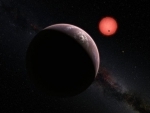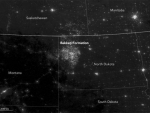Astronomers find dark energy may vary over time
Washington, Feb 1 (IBNS): A new study using data from NASA's Chandra X-ray Observatory and ESA's XMM-Newton suggests that dark energy may have varied over cosmic time, as reported in our latest press release.
From the colonies to the space race - past, present, future converge in Fourth Committee
New York, Dec 29 (IBNS): A timeline that stretches from the colonial past, through the present, and into the future for the final frontier in space, defines one of the United Nations General Assembly’s most versatile Main Committees – the Fourth Committee.
NASA’s long-serving climate chief Michael Freilich to retire next year
Washington, D.C., Sept 1 (IBNS): Michael Freilich, who is leading NASA’s work in earth science and climate change for 12 years, announced recently of his retirement early next year from the agency, media reports said.
Cassini image mosaic: A farewell to Saturn
Washington, Nov 22 (IBNS): In a fitting farewell to the planet that had been its home for over 13 years, the Cassini spacecraft took one last, lingering look at Saturn and its splendid rings during the final leg of its journey and snapped a series of images that has been assembled into a new mosaic.
Canada: NASA-style Stopwatch measures pulse of laser light
Toronto, Mar 31 (IBNS): Engineers from NASA’s Goddard Space Flight Center in Greenbelt, Maryland, for the Ice, Cloud and land Elevation Satellite-2 (ICESat-2) had built a timer to measure pulse of laser light.
NASA completes Webb Telescope Center of Curvature pre-test
Washington, Nov 3 (IBNS): Taking a “before†optical measurement of the telescope’s deployed mirror is crucial before the telescope goes into several stages of rigorous mechanical testing.
NASA prepares to launch first U.S. Asteroid sample return mission
California, Aug 18 (IBNS): NASA is preparing to launch its first mission to return a sample of an asteroid to Earth.
X marks the spot for Milky Way formation
New Delhi, July 19 (IBNS) A new understanding of our galaxy's structure began in an unlikely way: on Twitter. A research effort sparked by tweets led scientists to confirm that the Milky Way’s central bulge of stars forms an “X†shape. The newly published study uses data from NASA's Wide-field Infrared Survey Explorer (WISE) mission.
NASA Telescopes find clues for how giant Black Holes formed so quickly
California, May 25 (IBNS) Using data from NASA’s Great Observatories, astronomers have found the best evidence yet for cosmic seeds in the early universe that should grow into supermassive black holes.
Study helps explain sea ice differences at Earth's poles
California, May 21 (IBNS) Why has the sea ice cover surrounding Antarctica been increasing slightly, in sharp contrast to the drastic loss of sea ice occurring in the Arctic Ocean? A new NASA-led study finds the geology of Antarctica and the Southern Ocean are responsible.
New study maps rate of New Orleans sinking
California, May 16 (IBNS) The highest rates of sinking were observed upriver along the Mississippi River around major industrial areas in Norco, and in Michoud, with up to 2 inches (50 millimeters) a year of sinking.
Odd-even formula 2.0 worked but farm fires and forest fires played spoilsport: CSE
New Delhi, May 3 (IBNS): Centre for Science and Environment (CSE) has released its analysis of air quality data during the second phase of odd and even scheme- from April 15 to April 30.
Promising worlds found around nearby ultra-cool Dwarf Star
California, May 3 (IBNS) Astronomers using the TRAPPIST telescope at ESO’s La Silla Observatory have discovered three planets with sizes and temperatures similar to those of Venus and Earth, orbiting an ultra-cool dwarf star just 40 light-years from Earth.
NASA scientists scrutinize Arctic gas flaring pollution
Washington, Apr 27 (IBNS) Flaring of waste natural gas from industrial oil fields in the Northern Hemisphere is a potential source of significant amounts of nitrogen dioxide and black carbon to the Arctic, according to a new NASA study.
Airborne expedition tackles global air quality problem
California, Apr 22 (IBNS): NASA has marshalled some top-notch scientific know-how to take on a global public health problem: air pollution. Over the next six weeks, scientists will fan out across and above South Korea seeking to capture the intricate and elusive ebb and flow of changing air quality conditions. The data they collect will be used to help find new solutions to this health threat, not just on the Korean Peninsula but all around the world.





-1549028059.jpg)
